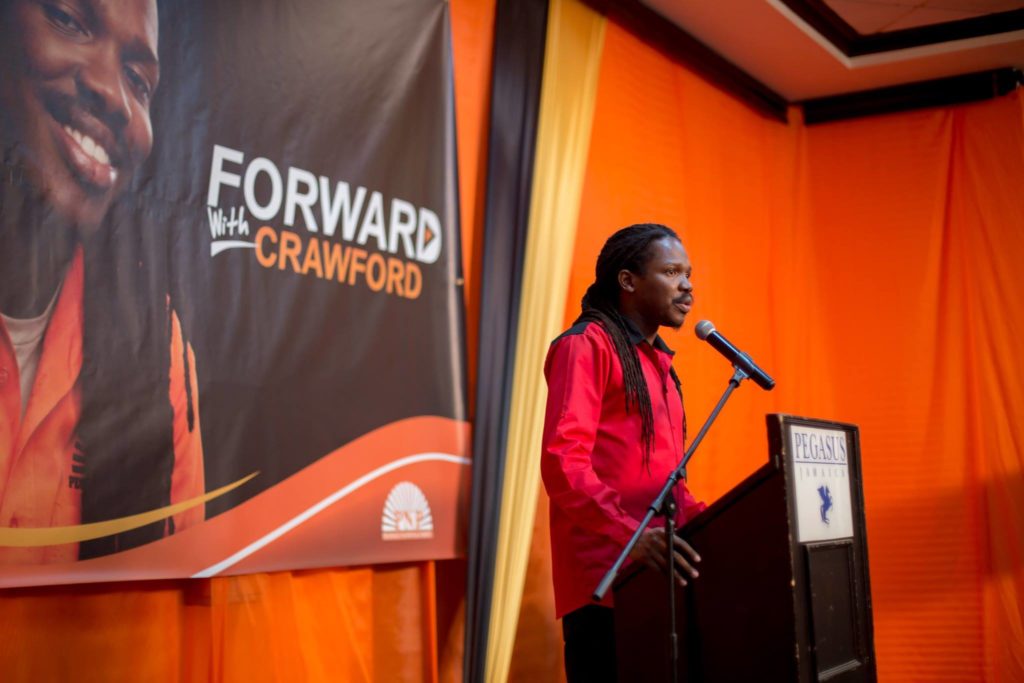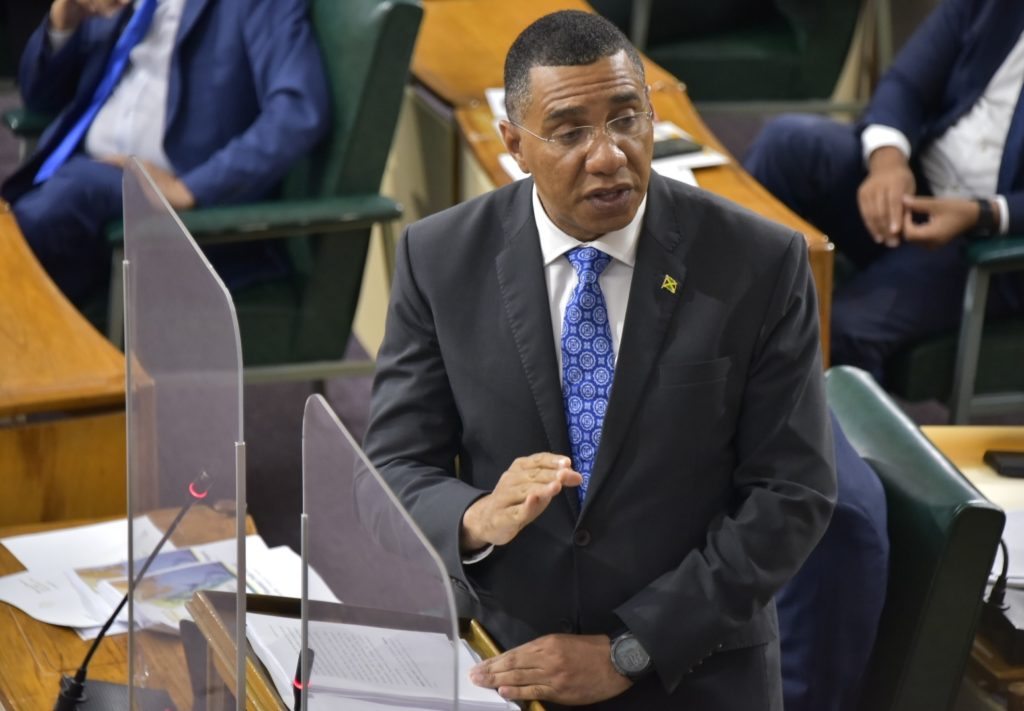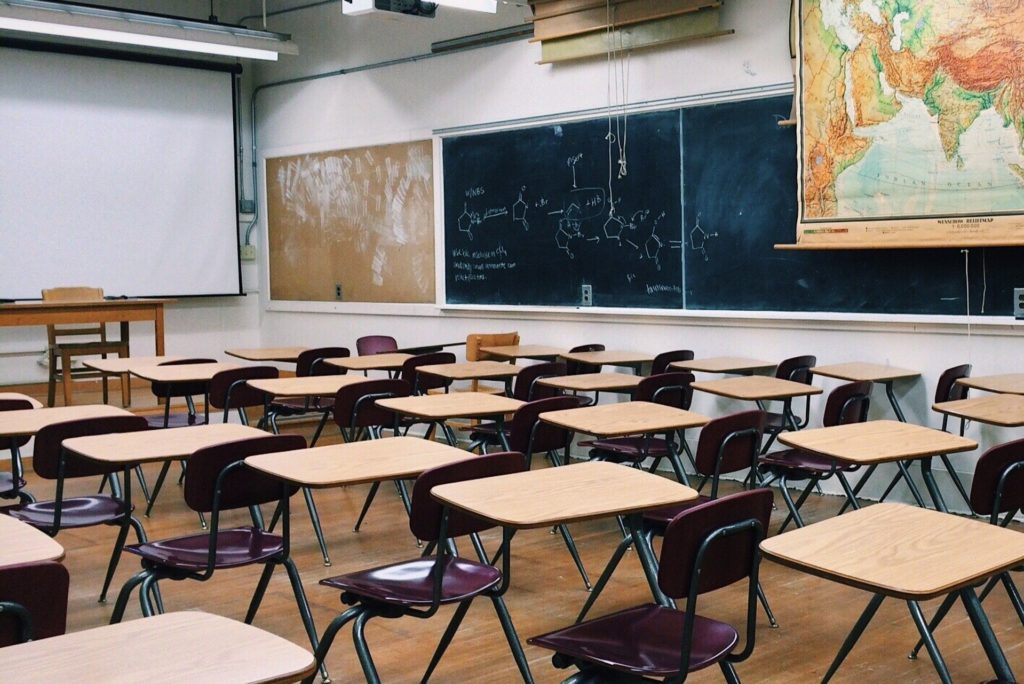

With roughly a quarter of the maximum J$4 billion highlighted by the World Bank and UNICEF Jamaica being spent to address learning loss due to the COVID-19 pandemic, and just two weeks away from the start of the 2022-23 academic year, the Opposition People’s National Party (PNP) has labelled the Government’s back-to-school readiness efforts an “epic failure”.
Senator Damion Crawford, opposition spokesperson on education, told journalists today (August 17) that the current unpreparedness for the reopening of the public school system, as poorly demonstrated by the Andrew Holness-led Government, makes a worrying situation even worse as several issues affecting the sector go unaddressed into the new school year.
In his assessment, Crawford said: “Almost every aspect of a smooth school reopening that falls under the control of the Government is in a state of disarray.”
This, he argued, only serves “as a handicap to school management teams and a further risk to the successful education of our Jamaican children”.
Crawford also underscored four critical concerns with the Ministry of Education’s approach to the issues plaguing many schools, such as:
- High levels of teacher migration and the impact a shortage of learning facilitators will have on the new academic year.
- Late and inadequate school furniture.
- Poor implementation of the Sixth Form Pathways Programme.
- Woeful availability of textbooks in the Government book rental system, and
- An insufficiently funded free education system.
In a joint statement after reviewing public expenditure in May 2022, the World Bank and UNICEF Jamaica indicated that the Government of Jamaica would need to pump an additional “J$2.4-3.9 billion annually for one-to-two years to mitigate student dropout and reverse learning loss”.
According to the organisations, the island stands to lose a projected J$828 billion for failing to do so.
Months earlier, however, during the 2022-23 Budget Debate in Parliament, Prime Minister Andrew Holness, on March 17, announced an allocation of J$1 billion for the upcoming fiscal year, which he said would cover the employment of temporary teachers to help students recover from learning loss experienced during the disruption of face-to-face classes.

Crawford, fielding questions from the media at the West Kings House Road offices of the Leader of the Opposition this morning, slammed the Government’s short-sightedness particularly as it seeks to break ground on state-of-the-art STEM centres for students and not teachers themselves.
“I am often confused by the decisions taken by the Government and further confused by the celebrations in the space of the people when those decisions are inefficient and impractical. If we are in a crunch for cash and we receive—thanks to the People’s National Party and long may live Portia Simpson Miller—a grant from the Chinese Government to build a particular type of school…it would be more sensible, I believe, for that school to be targeted towards teachers, training the multiplicity of trainers that will impact many students more so than to have a very few of our students grapple and fight like they do for the Campion [Colleges] and the KCs [Kingston Colleges] of this world, to go to that school,” he said.
“If we are having a shortage of math, technical and STEM teachers, that investment in infrastructure should be for a teacher school targeting STEM teachers, more so than a school that would facilitate no more than 1,000 students at a time. I find moving full speed ahead to be a grave concern,” the opposition education spokesman added.
Continuing, Crawford noted that the reactionary methodology of the Holness administration has reared its head before and will continue to do so as a shortage of math teachers reflects a similar gap in construction skills, to which suggestions by the prime minister of importing these talents only fail to address the root cause of the issues.

It is especially poignant, according to the shadow minister, as Jamaica has long struggled with a ‘culture of anti-math’, the impact of which is being felt today.
“Let us not think that as di leaf guh riva bottom, it rotten, because we’re now in need of technical workers in construction. Part of that reason over the last 20 years is that schools were incapable to recruit technical teachers to turn out [Jamaicans] with technical skills,” Crawford argued.
“When you can’t recruit teachers in steel bending because they are on the construction site and you don’t pay them enough, or electrical technician teachers, or sufficient draughtsmen, whatever the need, then our school system cannot turn out the necessary numbers that are important. That will also happen for our technical subjects as it did now, and for our STEM subjects, as we are moving in the future. It is of great concern and that is why it needs energy and creativity so that we can ebb the negativity that we have long been pondering but not been changing.
“What we have seen are decisions by a government that are for the celebration of the people, more so than the improvement of the people. One of those realities and examples is the choice made by the prime minister of this country to cancel the loan for the Montego Bay Bypass that was coming from [China] and to fund it from the Government instead of [funding] education from the budget,” he mused further.
It was not solely criticisms from Crawford and the PNP, who listed the following recommendations that the Government can ‘copy’ from its manifesto, namely:
- Immediately investing in staff room upgrades to create an adequate and comfortable environment for teachers to work from.
- Consider motor vehicle concessions of varying percentages for teachers serving five, 10 and 15 years uninterrupted.
- Reduce student loans by five per cent each year a teacher stays within the public education system.
- Arrange for a special teachers’ limit of J$14 million per person from the National Housing Trust (NHT) and a one per cent interest rate which transforms into a normal mortgage once a teacher leaves the system.
- A package deal negotiation with telecoms providers for teachers to receive internet access as a necessary ‘tool of trade’.
- Create a teacher/public sector housing scheme with rent control strategies in desirable communities, which can be managed by the Housing Agency of Jamaica (HAJ).
- Repurpose funds to be allocated for a student-centred STEM school for teachers instead.
- Hold further negotiations with private sector entities to offer teacher discounts.
- Reduce ‘red tape’ for principals in filling temporary spots with retired or pre-trained teachers in the short term.
- Negotiate with the private sector to allow staff so inclined to take two-three hour sessions to participate in teaching courses with shortages.
- Offer teaching training free during summer months for all university students and welcome others with degrees and/or diplomas who are willing to consider teaching in the future, and
- Recruit retired teachers in mentorship roles to assist less-experienced teachers.






Comments